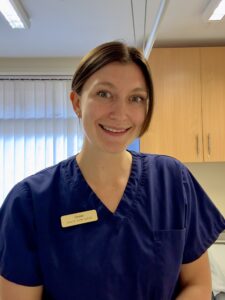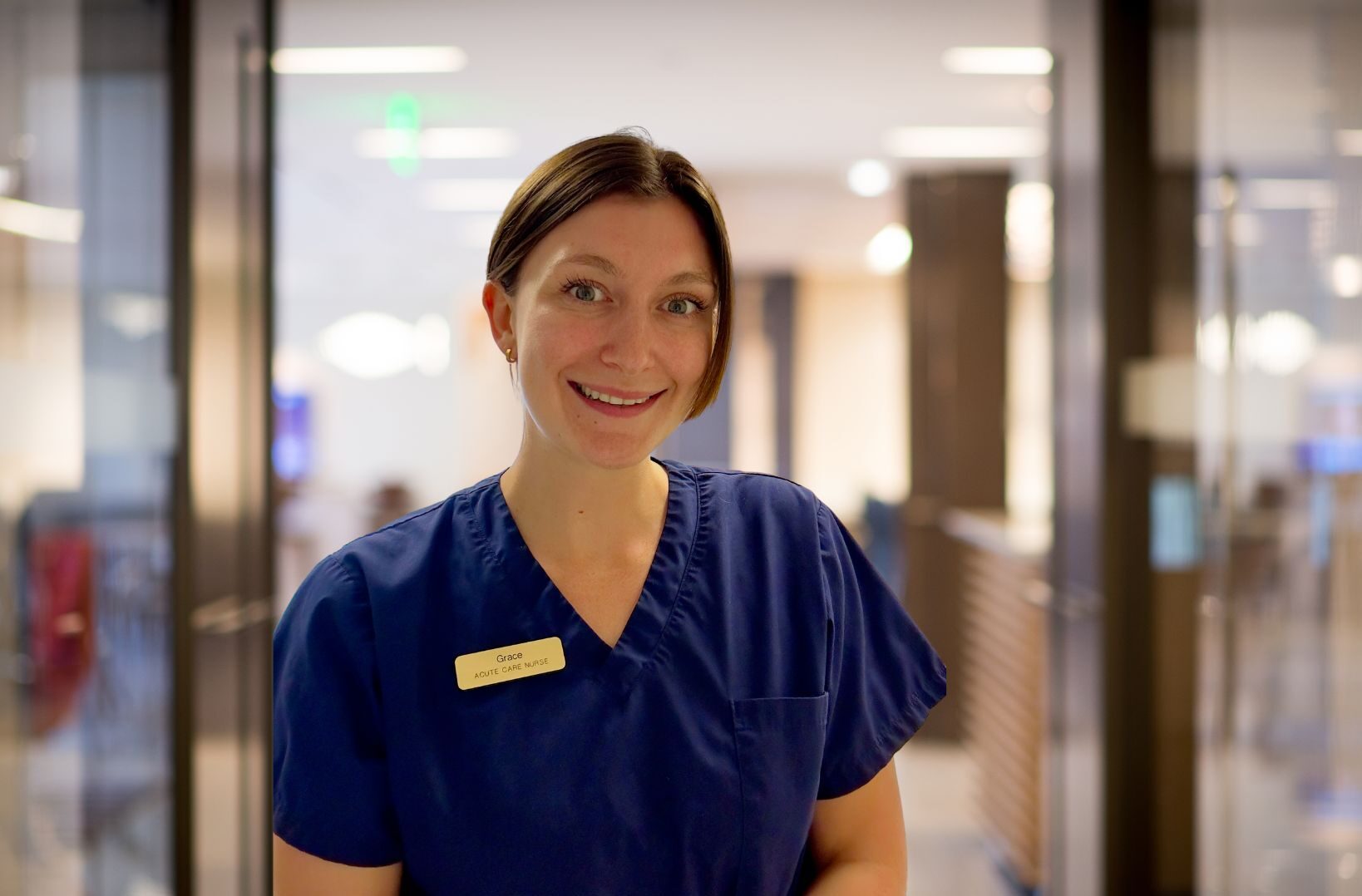 As a student nurse, I always had an inkling I wanted to work within primary care. I must admit, initially it was the work-life balance and the thought of no weekend or night shifts that appealed to me. However, during my final placement as a student nurse I requested (and very luckily was given) a placement in general practice.
As a student nurse, I always had an inkling I wanted to work within primary care. I must admit, initially it was the work-life balance and the thought of no weekend or night shifts that appealed to me. However, during my final placement as a student nurse I requested (and very luckily was given) a placement in general practice.
Within the first week, I completely fell in love with the role’s variety; ‘from the cradle to the grave’, patients of all ages and backgrounds, and varying degrees of acuity. In the morning I was shadowing baby immunisation clinics and, in the afternoon, complex wound care and long-term conditions.
I was surprised at the scope of knowledge the general practice nurses (GPNs) had, and the autonomy of the decision making involved in the role. I quickly learnt that GPNs are not necessarily ‘jack of all trades’ but ‘specialised generalists’ who are highly skilled clinical leaders that manage a caseload of complex conditions, striving to maintain wellbeing and safety while keeping people out of hospital where possible.
Covid disruptions
Unfortunately, in my third week on placement, Covid struck and lockdown was announced. I was pulled from General Practice and drafted to work within secondary care as a band 4 ‘aspirant nurse’. I was disappointed but I had already fallen in love with the GPN role in such a short space of time. I was adamant that as soon as I qualified, I would be back working within General Practice.
I remember explaining to staff nurses on the wards that I wanted to work as a GPN when I qualified, but I often was met with unwanted advice. “You need to get 12 months of acute care under your belt”. Why? I thought. Wouldn’t it be better to get the experience in the role I want? Wouldn’t it be better to spend the first part (and probably hardest part) of my nursing career doing something I love, and I am passionate about?
Others would give me a blank look; “Don’t go there, you’ll end up deskilling”. I really hate this terminology. There is no such thing as ‘deskilling’, just learning new and different skills. I think this is a very outdated view and it is a shame there isn’t more exposure of the vital role that GPNs play in the health of the local community.
The GPN Fellowship
In a bid to expand the healthcare workforce, The NHS Long Term Plan (2019) introduced the GP/GPN Fellowship, which offers a contract of employment alongside a portfolio role tailored to the needs of the local area. This aims to encourage newly qualified nurses to consider primary care as a first destination. Hopefully this will shine a light on GP and dispel the myth that a GPN is role for when you’re ready to settle down and about to retire.
During a careers day at university, I was able to network with the local education team who informed me there was the opportunity for me to undertake the GPN Fellowship. After submitting my CV, I was able to secure a GPN job within the local area, alongside study days to complete the Fellowship, and support gaining the knowledge and skills required to work within General Practice.
I started the Fellowship back in September 2020. The first stage consisted of the ‘foundations of general practice’ course; a nine-month course involving an in-depth portfolio that required completion of clinical skills. These skills included cervical screen sampling, compression bandaging, immunisation, consultation communication and health promotion. The portfolio also had opportunities for service improvement, and I was able to give patients information materials, and antibiotic stewardship education for colleagues.
Specialisms and Support
For the second part of the Fellowship, I chose to undertake a six-month diabetes management module. I found the pathophysiology of diabetes to be complex and interesting, but equally I have enjoyed putting people at the forefront of care, as individual needs, preferences and priorities are so different (which can be both challenging and rewarding). That said, if diabetes is not for you, there is a plethora of other areas that may tickle your fancy, such as hypertension, travel, respiratory, women’s health, and sexual health to name a few.
The Fellowship also includes overarching one to one and group clinical support. I was fortunate enough to receive support from Angie Hack (Assistant Director of Nursing Programmes at the QNI) which has been invaluable. Angie allowed me to become more self-aware and analyse my progress, practice, knowledge and skills at different stages of my journey. Being able to highlight my strengths and weaknesses and areas for development ultimately makes me a better nurse. Being a newly qualified nurse is not easy in any area of nursing, so having Angie as an impartial person to moan with, laugh with, and cry with really helped me get through the trickier times.
The Future
Undertaking and completing the Fellowship at the start of my nursing career has been a very steep learning curve. However, I am so glad I did it, as the support from the Fellowship has set me up with the knowledge, skills, and resilience I require to work as a competent and confident autonomous practitioner.
As of today, I still work in General Practice, but I have moved away from the ‘typical’ GPN role. I now work as a nurse practitioner in ‘the acute care team’ dealing mostly with minor illness and urgent care within the GP surgery, although I continue to work as a diabetes nurse within this role. I have recently completed the physical examination assessment module and will be starting my next module, diagnosis assessment and decision-making, next month.
Without the Fellowship (and Angie’s support and passion for nursing) I would not be where I am today. I am in a role I absolutely adore and working towards hopefully completing a master’s degree in advance clinical practice. These are things I never imagined I would be doing on my first day as a GPN. The Fellowship provided me with the exposure to the wider primary care team and opened my eyes to the vast opportunities available for nurses in primary care and general practice.
It is important to stop and reflect on how far I have come. Three years into qualifying as a registered nurse I feel I have achieved so much, but equally have so much more to give.
Grace Rushmere RGN BN (Hons), Rapid Access Care Team/Diabetes Nurse
Reference: The NHS Long Term Plan (2019).
